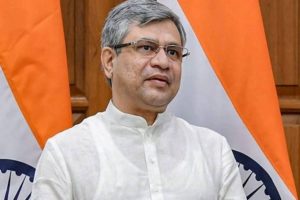As the 21-day countrywide lockdown in India bagan past midnight on Wednesday, expressing solidarity with India in its fight against coronavirus, WHO representative to India Henk Bekedam praised the country’s response to the pandemic, describing it as “comprehensive and robust”.
“Massive efforts have been made towards prevention and containing the spread, including strengthening surveillance, laboratory capacity, contact tracing and isolation and risk communications,” Bekedam said.
Advertisement
He further added that “the Prime Minister’s call for social distancing had received widespread community support across the country.”
“It is vital that we come together in solidarity and help in breaking the chain of transmission and flattening the curve,” he said.
The United Nations said, “India is on a 21-day lockdown to try and prevent the COVID-19 pandemic from taking hold.” The @UN health agency @WHO urged the Gov to take ‘aggressive action’ in a tweet by UN News.
The number of coronavirus cases in India stood at 562 on Wednesday with 10 COVID-19 deaths reported so far.
Prime Minister Narendra Modi in his second address in a week on coronavirus crisis to the nation on Tuesday announced a 21 days strict complete lockdown in the entire nation, starting from midnight.
PM Modi further said it is in a way a curfew and would be more stringent that Janata Curfew.
“Forget about leaving home in the next 21 days. If you cross the Lakshman Rekha, you will invite the virus home,” PM warned citizens.
“United Nations stands in solidarity with India in its fight against COVID-19, said a video message tweeted by United Nations News on Tuesday by the UN’s multimedia news service.
The video also took note of the ‘Janta Curfew’ observed across India on Sunday, when the country’s 1.3 billion citizens stayed at home from 7 am to 9 pm in an effort to practise social distancing.
The international bodies WHO and other UN partners have been working closely with the Indian government on preparedness and response measures, disease surveillance, laboratory and research protocols, risk communications, training on infection prevention and control and cluster containment plan, surveillance and tracking of travellers.
Speaking at press briefing in Geneva on Monday, WHO Emergencies Programme Director Mike Ryan had said that it was important for India to ramp up measures at public health and societal level to control and suppress the disease.
“India is a hugely populous country. The future of this pandemic will be determined by what happens to densely-populated countries,” he said.
Ryan said India, the world’s second most populous country, had a tremendous capacity to deal with the coronavirus outbreak as it has the experience of eradicating the small-pox and polio through targeted public intervention.
“India led the world in eradicating two silent killers and eliminating them from the country,” he said on Monday.
India, through targeted public intervention, ended smallpox and gave a great gift to the world. India also eradicated polio, he noted.
“India has tremendous capacities. It is exceptionally important that countries like India lead the way to show the world what can be done. There are no easy answers. It is exceptionally important that countries like India show the way to the world as they have done before,” he said.
Meanwhile, WHO Director-General Tedros Adhanom Ghebreyesus on Monday warned that the coronavirus pandemic was clearly “accelerating” but said it was still possible to “change the trajectory” of the outbreak.
“The pandemic is accelerating,” Tedros told journalists in a virtual news briefing.
He said it took 67 days from the beginning of the outbreak in China in late December for the virus to infect the first 100,000 people worldwide. In comparison, it took 11 days to reach a total of 200,000 cases and just four days for the third 100,000 cases to bring the total number of cases worldwide to more than 300,000, he said.
With a population of 1.3 billion, India has gone under a complete lockdown from Wednesday after Prime Minister Narendra Modi requested the citizens to take the COVID-19 pandemic seriously which has claimed 18,901 lives globally.
On Tuesday the death toll climbed to 11 in India with 562 cases.
The Centre, has put in place a provision of Rs 15,000 crores for treating coronavirus patients and strengthening the medical infrastructure of the country.
India is not the only country to announce an unprecedented lockdown, Boris Johnson, the Prime Minister of United Kingdom also called for a three-week shutdown in the country on Tuesday.
United Nations Secretary-General Antonio Guterres urged leaders of the G20 nations on Tuesday to adopt a wartime plan including a stimulus package in the trillions of dollars for businesses, workers and households in developing countries trying to tackle the coronavirus pandemic.
He said in a letter to G20 leaders that they account for 85% of the worlds gross domestic product and have a direct interest and critical role to play in helping developing countries cope with the crisis.
“Let us remember that we are only as strong as the weakest health system in our interconnected world,” the UN chief said. “We must create the conditions and mobilise the resources necessary to ensure that developing countries have equal opportunities to respond to this crisis in their communities and economies.”
(With PTI inputs)











